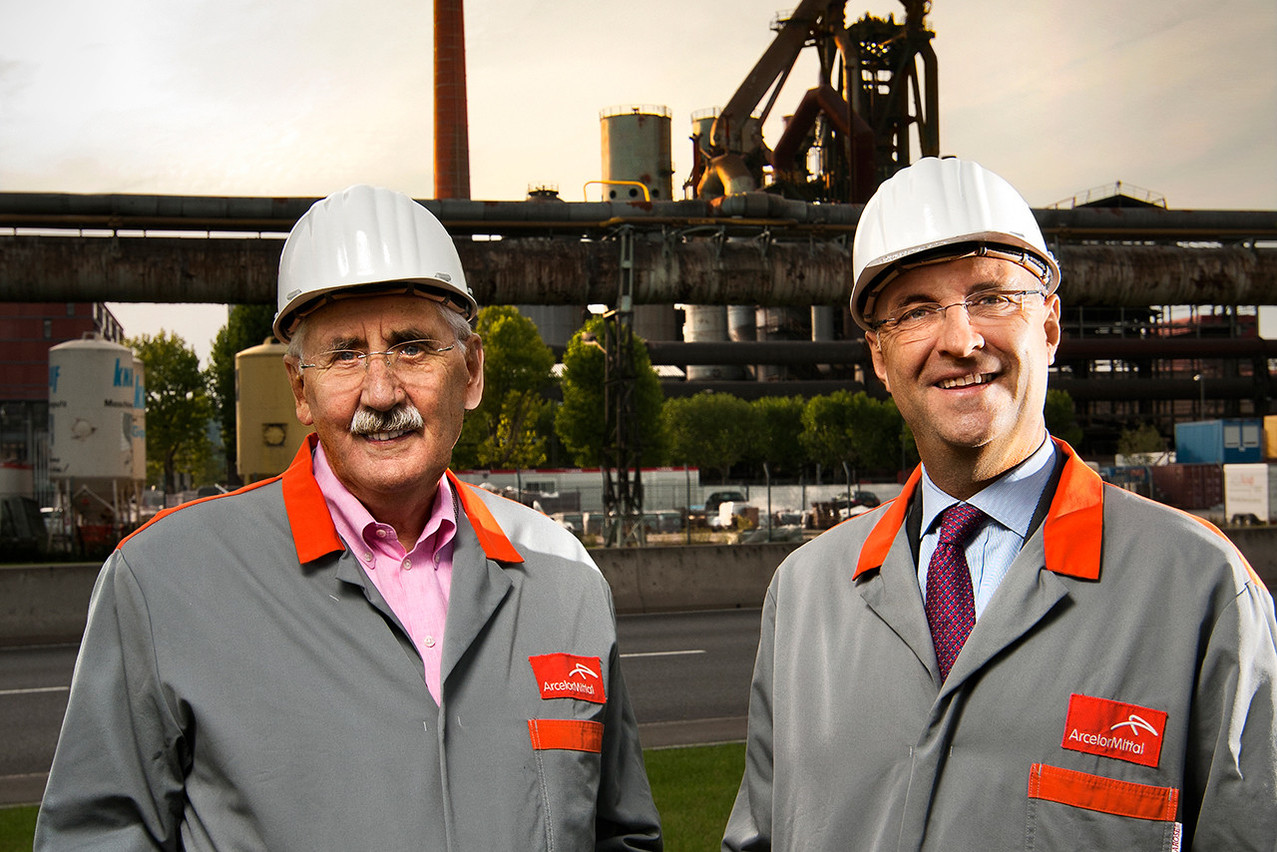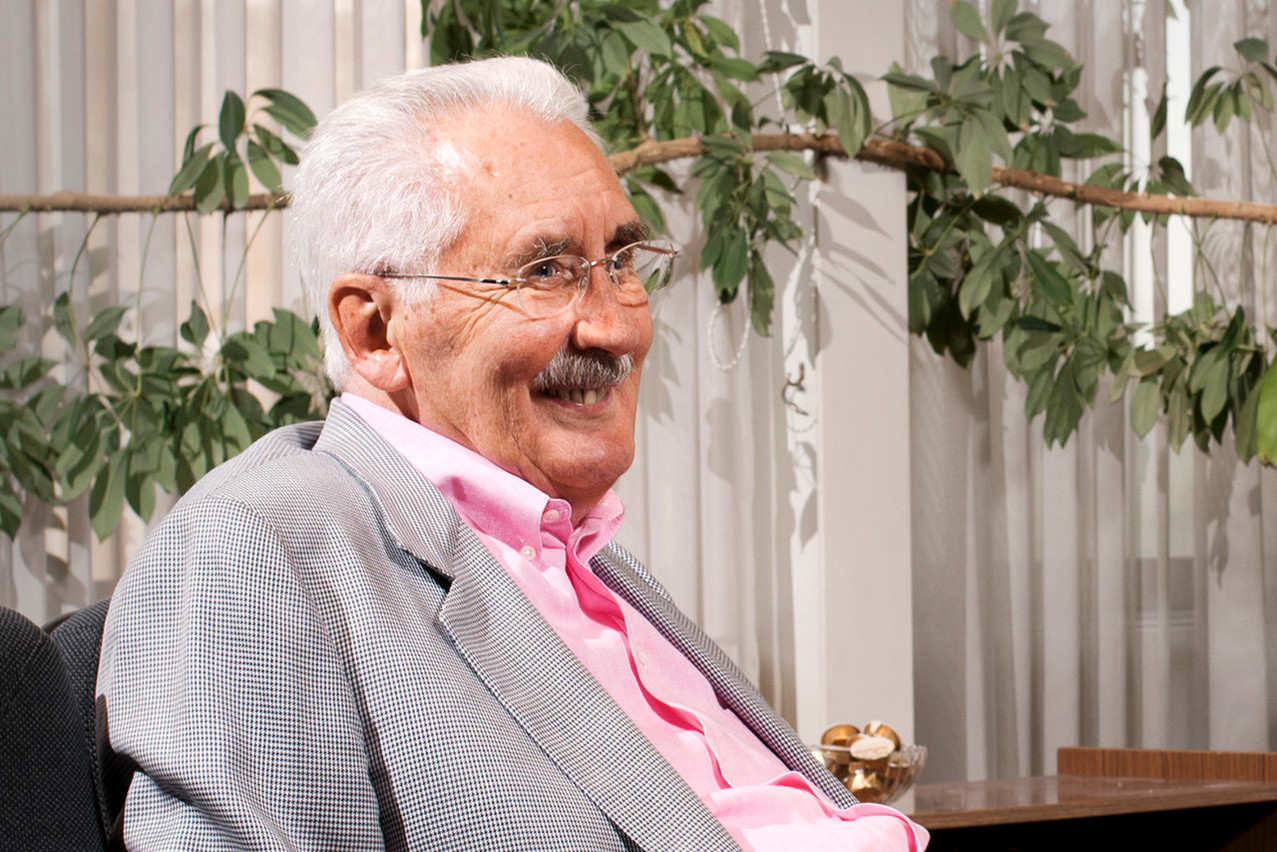Tributes have been flowing this weekend for Joseph Kinsch, an emblematic figure in the Luxembourg steel industry, who has died at the age of 89.
Born on 2 May 1933 in Esch-sur-Alzette, Kinsch studied economics in Saarbrucken and joined Arbed in 1961. He became a member of the group's management committee in 1980 as general director responsible for finance at a time when the steel industry was facing turbulent times--in 1986 the Luxembourg state became a majority shareholder in Arbed with a 42,9 % stake. Kinsch was then appointed managing director in 1992 and oversaw the modernisation of Luxembourg plants from blast furnace to more efficient electric arc furnace technology.
He was also behind Arbed's expansion strategy in Europe and Brazil and the eventual merger of the Luxembourg group with Spain's Aceralia and France's Usilor-Sacilor, which gave rise to Arcelor in 2002.
But four years later the company was the subject of a hostile takeover from Indian steel giant Mittal. Kinsch was one of the chief opponents inside Arcelor to the takeover. “After several attempts to derail the takeover, he finally conceded in the summer of 2006 to what he described as a 'marriage of convenience'," French finance paper Les Echos wrote in December 2007.
Read also
But in Kinsch, Arcelor and Luxembourg had a staunch champion when he essentially took over negotiations with Mittal from then CEO Guy Dollé, who had been in favour of a futile plane to merge with Russian company Severstal. Kinsch was decisive in ensuring that the name Arcelor be included in the merged company’s title and also insisted that its headquarters be in the grand duchy. He was even named chairman of the board of the new company, while Lakshmi Mittal was president. Kinsch finally stepped down from the new company in May 2008.
Kinsch was also president of the Luxembourg Chamber of Commerce from 1993 to 2004 and was also a founder of Luxembourg Employers’ Association, UEL. He also spent 25 years as president of the board of Luxembourg weekly newspaper Lëtzebuerger Land, a post he took over from his brother Léon when the latter passed away in 1983.
A visionary and dedicated Luxembourger
Prime minister Xavier Bettel was among those paying tribute to Kinsch after his death was announced last Friday. “His vision and dedication to the country characterise Luxembourg to this day. I express my heartfelt condolences to the family,” Bettel wrote in a tweet.
Economy minister Franz Fayot said that the recent decision to invest €130 million in decarbonisation technologies at ArcelorMittal sites in Belval and Bissen would not have been possible without the strategic decisions taken by Kinsch in the 1990s. “That shows what a visionary he was,” Fayot told RTL.
“He was the architect of the modernisation of the Luxembourg steel industry and its continued globalisation,” Bruno Theret, senior advisor at ArcelorMittal, said on his Facebook page. “In the 1990s he consolidated the long products sector by taking over Unimetal's sheet piling and beam activities. It also made successful acquisitions in Eastern Europe. He replaced blast furnaces with electric furnaces and created ProfilArbed,”
And LCGB union president Patrick Dury also praised Kinsch’s vision in modernising the industry in Luxembourg. “He was a manager with great social competence. Thanks to him, the steel industry was restructured without anyone being fired.”

Joseph Kinsch and Michel Wurth in 2011. Photo: Andrés Lejona/Paperjam archives/2011
